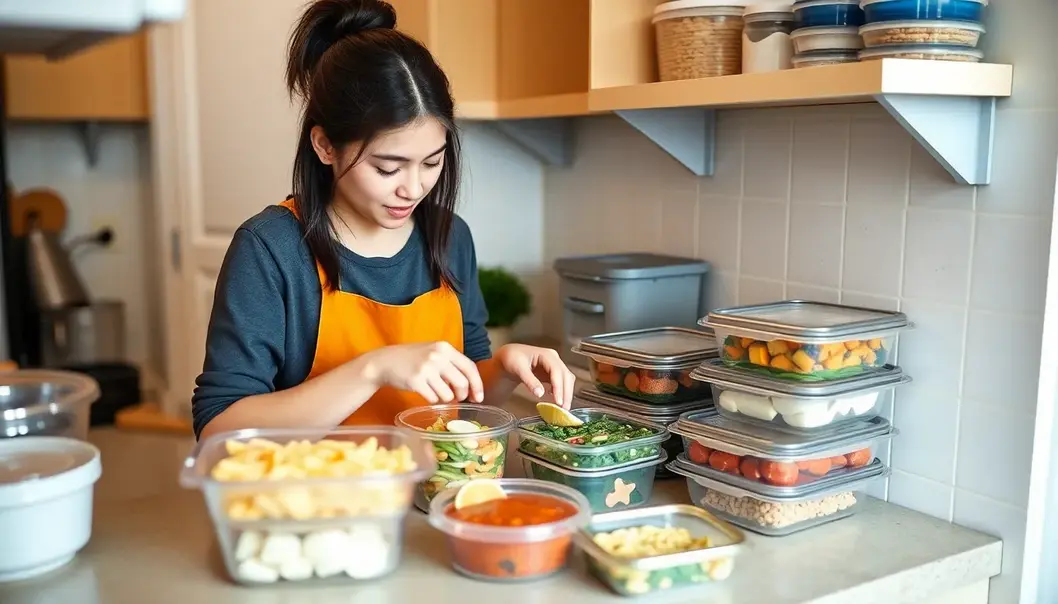College life can be hectic, and with a limited budget, meal planning might seem like a daunting task. However, learning how to plan your meals economically can save you both time and money. Whether you’re trying to avoid that ramen noodle rut or just want to add some variety to your diet without going broke, optimizing your grocery shopping and cooking methods can be game changers. Dive into these chapters for insightful tips on maximizing your meals without minimizing your wallet. Let’s make delicious, budget-friendly meals a part of your college life.
Smart Grocery Shopping Hacks

Implementing smart grocery shopping strategies can revolutionize how college students manage their food budgets. Taking a little time to plan before hitting the store goes a long way in saving money. One foundational strategy is crafting a comprehensive shopping list. By identifying essentials and meal necessities beforehand, students can avoid wandering through aisles and picking up items on a whim, which leads to impulse buying.
Another invaluable tip is buying in bulk. While it might seem daunting at first, buying staples like rice, pasta, and canned goods in larger quantities often reduces the per-unit price significantly. Sharing bulk purchases with roommates can also make this more practical and manageable. It’s crucial, however, to ensure that perishable items purchased in bulk can be stored properly, preventing waste that could negate any savings.
Choosing generic or store brands can also drastically cut costs without sacrificing quality. These products are often made in the same factories as name brands and deliver similar taste and nutrition. This small switch can lead to significant savings over time.
A smart tactic is to align meal plans with current sales and discounts. Checking flyers or digital apps for the best deals helps students plan meals around what’s most affordable each week. Discounts often coincide with foods that are in season or available in surplus, making them not only cost-effective but also fresh and nutritious choices.
Avoiding the temptation of impulse buys requires discipline but can be managed. Strategies such as not shopping on an empty stomach and setting a budget to adhere to can help. Keeping focus on the list aids in resisting alluring but unnecessary items.
Smart shopping habits contribute to overall health and financial well-being. With a careful approach to grocery trips, every dollar stretched at the store contributes more significantly to the college lifestyle, freeing up funds for other student expenses and ensuring nutritious meals remain within reach.
Efficient Meal Prep for Busy Schedules

Balancing classes, assignments, and social life can make meal planning seem like a chore. However, with smart meal prep techniques, college students can save time, reduce stress, and stick to a budget. By dedicating a few hours once a week, you can ensure that you always have nutritious meals ready to go, even during the most hectic days.
Start by choosing recipes that are simple yet versatile. Focus on dishes that share common ingredients to save both time and money. For example, ingredients like rice, pasta, and chicken can be transformed into a myriad of meals simply by altering spices and vegetables. By rotating these staples, you can keep your meals exciting without a hefty price tag.
Batch cooking is central to efficient meal prep. Prepare a large quantity of a base ingredient, such as a pot of quinoa or roasted vegetables, and portion it into single servings. Store them in airtight containers, ready to be combined with different proteins and sauces throughout the week. This approach reduces the urge to grab last-minute takeout, which can quickly drain your budget.
Freezing meals is another effective strategy for preserving freshness and extending your options. Soups, stews, and casseroles freeze particularly well, retaining flavor and texture. Portion out meals into freezer-safe containers, labeling them with contents and dates. This not only makes for quick meal solutions but also ensures no food—and no money—goes to waste.
Understand portion sizes to avoid over-prepping, which can lead to waste. Use measuring cups or kitchen scales to accurately portion out meals. This not only helps in maintaining nutritional balance but also ensures that each meal satisfies hunger without overindulgence.
Efficient meal prep also includes the creative use of leftovers. Leftover roasted veggies can be tossed into a stir-fry or blended into a hearty soup. Cooked grains can turn into a satisfying salad or fried rice. Embracing a resourceful mindset in the kitchen is key to maximizing both budget and storage space.
By incorporating these efficient meal prep strategies, college students can enjoy the benefits of homemade meals without sacrificing their schedules. With a well-organized approach, eating well on a budget becomes attainable, leaving more time to focus on studies and enjoying college life.
Final words
Eating well on a budget is not only possible but also fun. With a bit of planning and creativity, you can make meals that are both delicious and economical. Remember, the key is to be strategic with your shopping and smart in your kitchen. Over time, these habits will not only save you money but also improve your culinary skills. Here’s to enjoyable and stress-free college eating!
Ready to maximize your college mealtime efficiency? Discover more tips and meal plans!
Learn more: http://collegebudgetmeals.com
About us
College Budget Meals specializes in providing students with practical tools and strategies for maintaining nutritious and affordable eating habits. Our resources include meal plans, budgeting tips, and shopping guides to empower students to eat well without exceeding their financial constraints.



